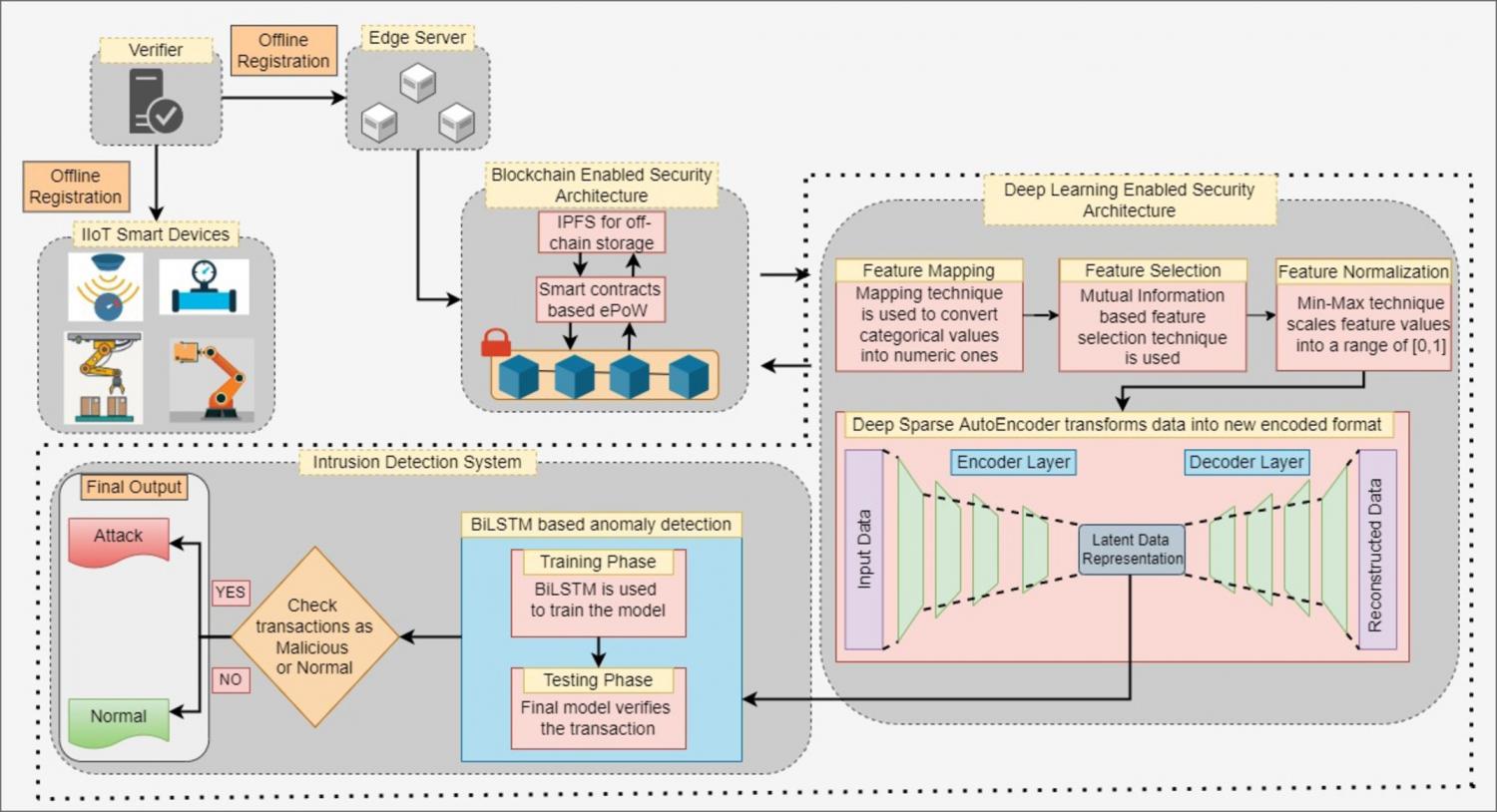
The integration of the Internet of Things (IoT) with traditional healthcare systems has improved quality of healthcare services. However, the wearable devices and sensors used in Healthcare System (HS) continuously monitor and transmit data to the nearby devices or servers using an unsecured open channel. This connectivity between IoT devices and servers improves operational efficiency, but it also gives a lot of room for attackers to launch various cyber-attacks that can put patients under critical surveillance in jeopardy. In this article, a Blockchain-orchestrated Deep learning approach for Secure Data Transmission in IoT-enabled healthcare system hereafter referred to as “BDSDT” is designed. Specifically, first a novel scalable blockchain architecture is proposed to ensure data integrity and secure data transmission by leveraging Zero Knowledge Proof (ZKP) mechanism. Then, BDSDT integrates with the off-chain storage InterPlanetary File System (IPFS) to address difficulties with data storage costs and with an Ethereum smart contract to address data security issues. The authenticated data is further used to design a deep learning architecture to detect intrusion in HS network. The latter combines Deep Sparse AutoEncoder (DSAE) with Bidirectional Long Short-Term Memory (BiLSTM) to design an effective intrusion detection system. Experiments on two public data sources (CICIDS-2017 and ToN-IoT) reveal that the proposed BDSDT outperformed state-of-the-arts in both non-blockchain and blockchain settings and have obtained accuracy close to 99% using both datasets.
